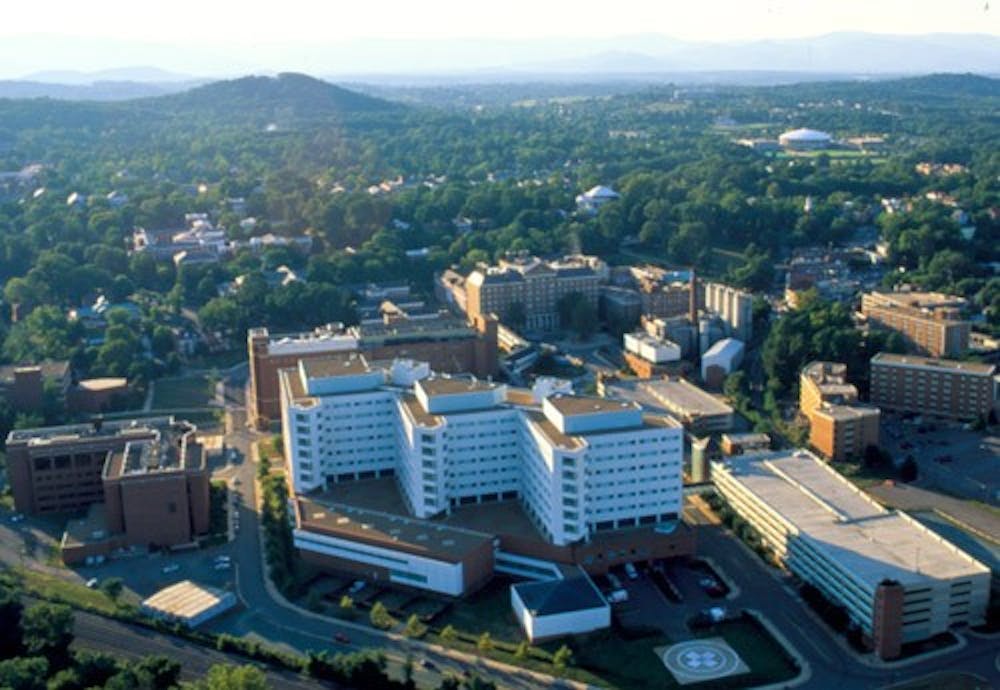On May 1, the U.S. Food and Drug Administration granted an emergency-use authorization for the antiviral medication remdesivir after a clinical trial conducted by U.Va. Health in conjunction with the National Institutes of Health showed it could accelerate COVID-19 recovery by 31 percent. However, just weeks after the authorization was granted, the commonwealth’s remdesivir supply is already scarce, according to Virginia Health Commissioner Norman Oliver.
Gilead Sciences — the primary manufacturer of remdesivir in the U.S. — donated an initial supply of 1.5 million doses to be distributed to those in need around the globe on May 3. According to the U.S. Department of Health and Human Services, the federal government received 607,000 doses, and it will distribute these initial doses to 78,000 Americans in the areas hit hardest by the virus.
Just days ago, the Virginia Department of Health received its second-largest shipment of the drug and is expected to receive more in the coming weeks. According to Julian Walker, Virginia Hospital and Healthcare Association’s vice president of communications, shipments from the Virginia Department of Health will allow around 650 Virginians hospitalized with COVID-19 from across the commonwealth to take remdesivir. Charlottesville’s two largest hospitals — Sentara Martha Jefferson Hospital and the University Health System — are scheduled to receive allocations of the drug.
Even still, Oliver warns that the commonwealth’s supply for the medication is limited, as there are currently 1,497 Virginia patients hospitalized with COVID-19.
The present difficulties associated with manufacturing remdesivir will prolong the shortages. According to University infectious disease specialist Taison Bell, the drug’s supply chain is global and includes raw materials that must be sourced from around the world. While Gilead has managed to navigate some of these challenges and reduce the manufacturing process from what experts expected to be one year down to just six months, Bell forsees remdesivir shortages still occurring.
“We anticipate a supply shortage globally, nationally and locally,” Bell said. “[The] initial supply was not enough to meet clinical demand.”
While patients at U.Va. Health can still access remdesivir by participating in the second round of the NIH clinical trial, Bell noted that the University Health System would not be exempt from these effects.
To give patients an equal opportunity of receiving the drug, Virginia will be implementing a random selection model — or lottery system — for remdesivir distribution to hospitals. The model is based on the number of the hospital’s confirmed COVID-19 cases and capacity to administer the drug. Hospitals chosen in the first lottery round will receive 10 cases of remdesivir with locations that have already received shipments from the federal government being excluded from the first round. According to the Virginia Department of Health, 10 cases is enough to treat 36 coronavirus patients taking the drug for the 10-day course.
Though Oliver is unsure if the lottery will be conducted by computer or via another method, he is clear as to who is eligible for remdesivir — those hospitalized by COVID-19. No weight will be given to severity of illness as the drug is thought to prevent those with less severe cases of the illness from becoming severely ill and needing a respirator.
The drug’s scarcity is expected to worsen as many clinical trials at Virginia hospitals are ending. These trials ensured a steady remdesivir supply for participating hospitals, including the University Health System.
Concerns over the transparency of federal distribution as well as overall national supply have arisen as the drug is being used to treat more and more COVID-19 patients. For example, Massachusetts General Hospital is treating around 200 patients with the virus but has only enough remdesivir for 65 of them.
White House Press Secretary Kayleigh McEnany described the federal government’s intent for distribution.
“This drug is promising, and we want to get it to the American people and the areas that need it most,” McEnany said.
While little is still known about remdesivir, U.S. healthcare officials remain optimistic about its therapeutic benefits for those hospitalized with COVID-19.
“[The] FDA’s emergency authorization of remdesivir, two days after the National Institutes of Health’s clinical trial showed promising results, is a significant step forward in battling COVID-19 and another example of the Trump Administration moving as quickly as possible to use science to save lives,” said Alex Azar, secretary of Human and Health Services, in an FDA press release.







